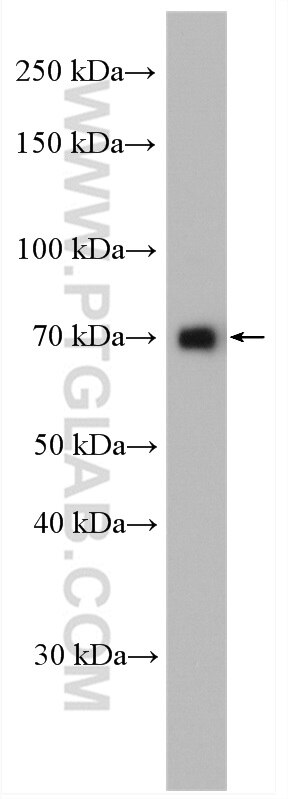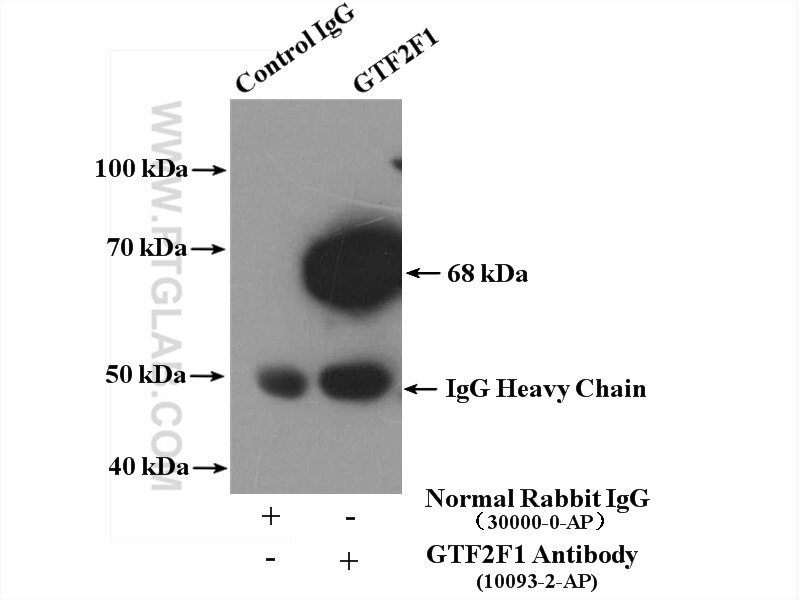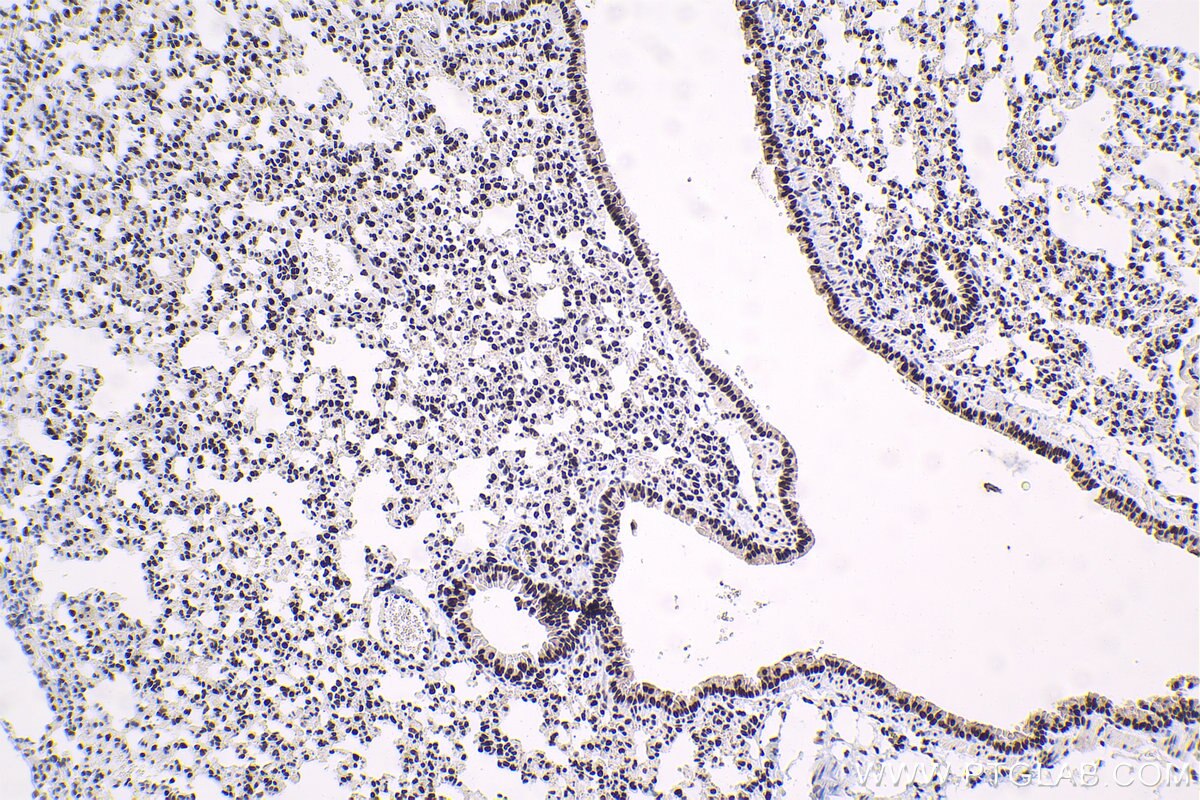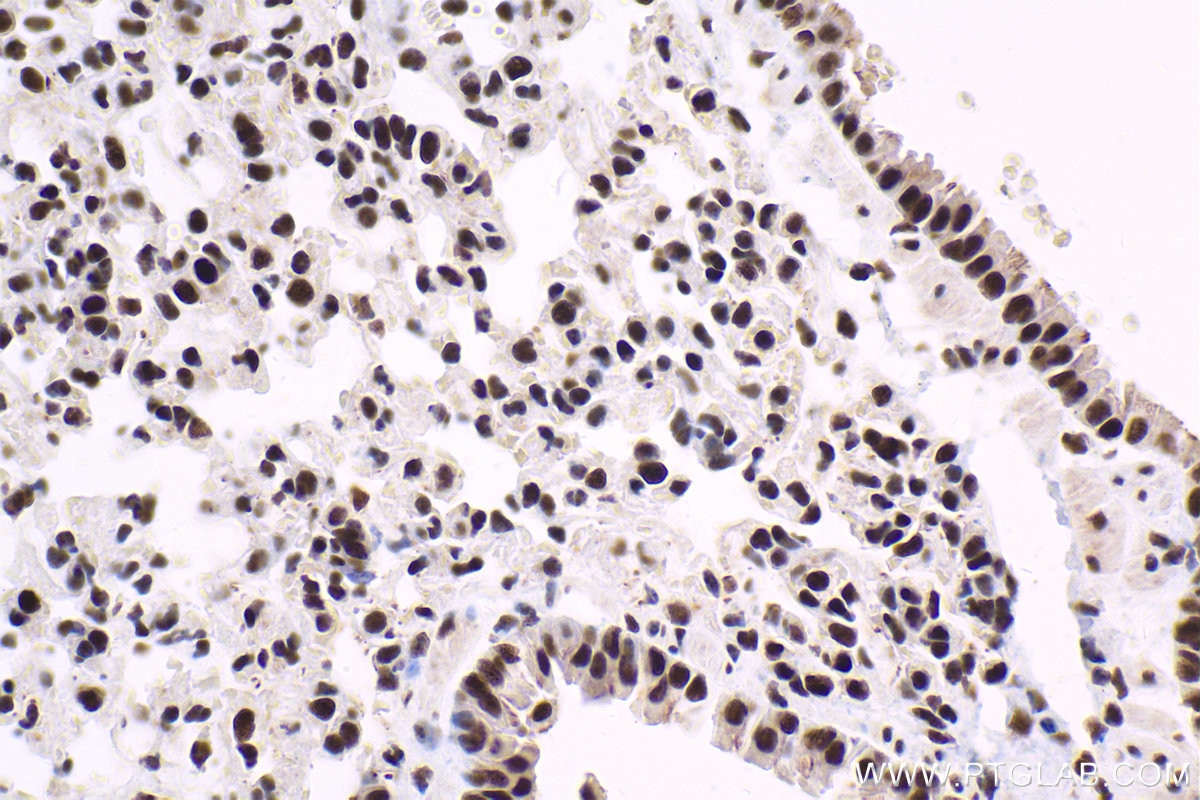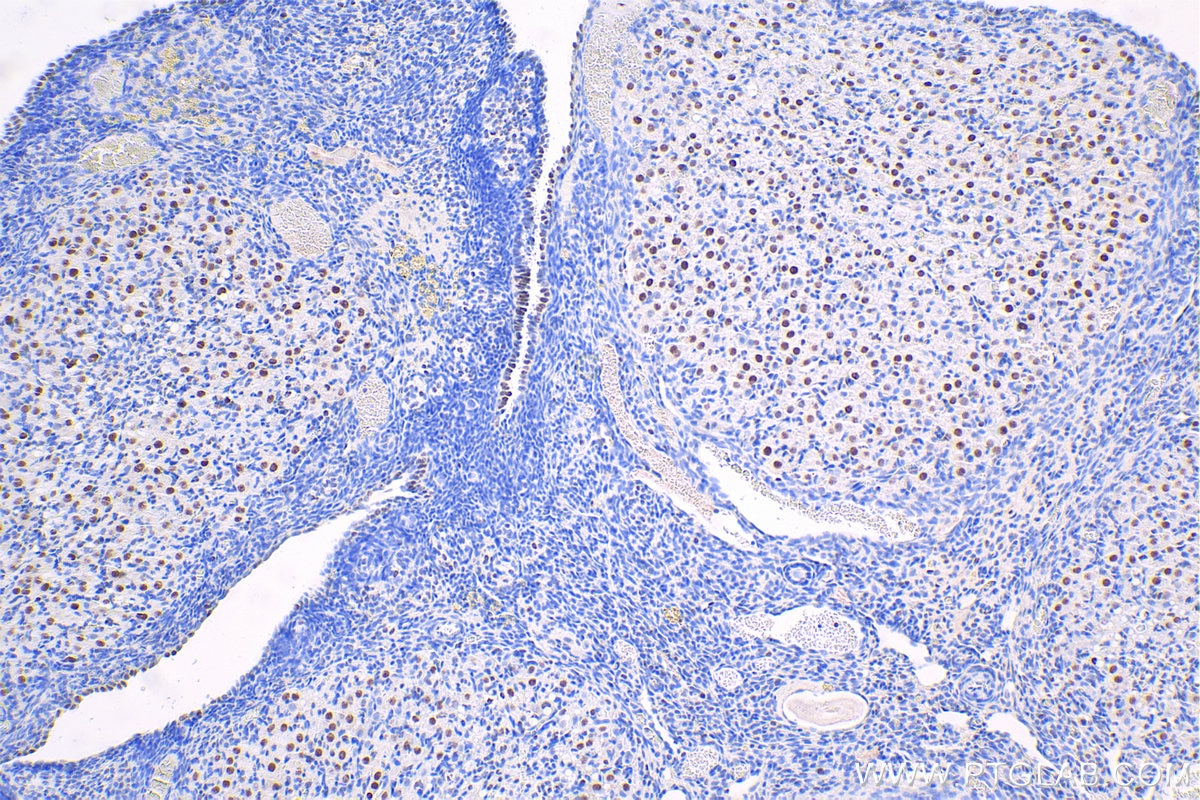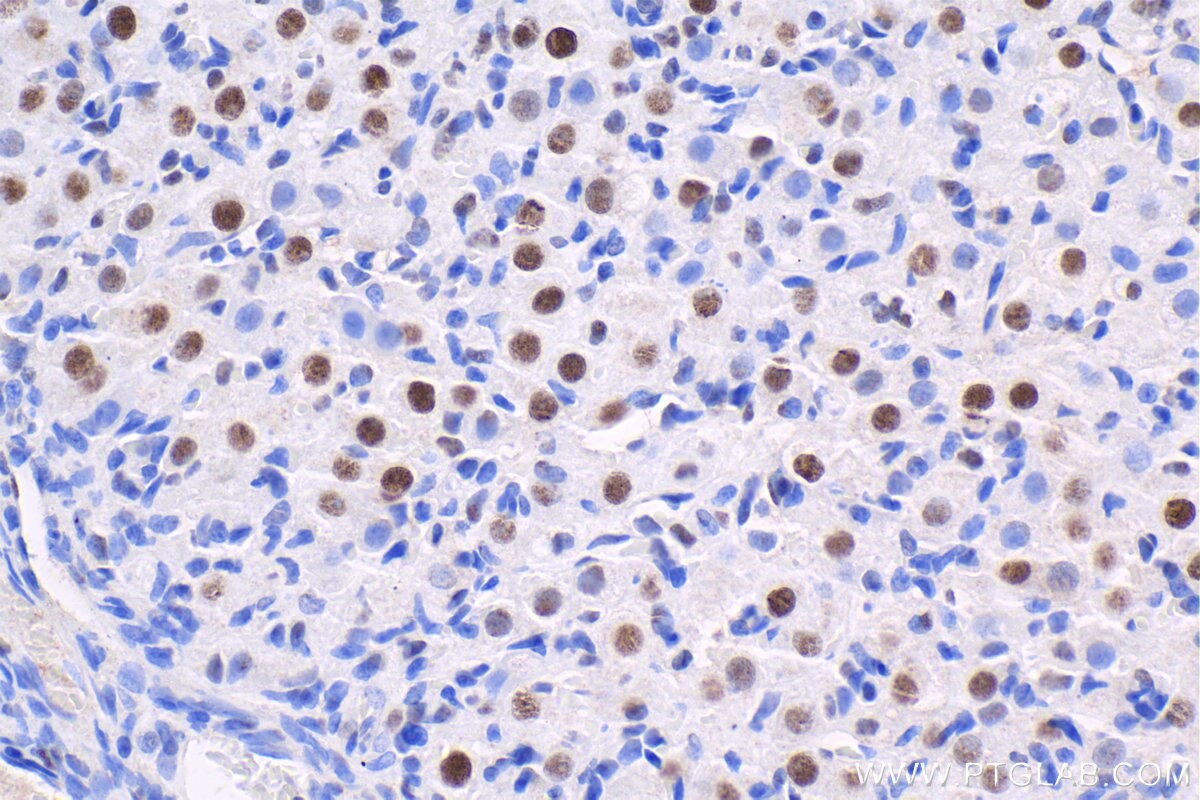GTF2F1 Polyklonaler Antikörper
GTF2F1 Polyklonal Antikörper für WB, IP, IHC, ELISA
Wirt / Isotyp
Kaninchen / IgG
Getestete Reaktivität
human, Maus, Ratte
Anwendung
WB, IP, IHC, ELISA
Konjugation
Unkonjugiert
Kat-Nr. : 10093-2-AP
Synonyme
Galerie der Validierungsdaten
Geprüfte Anwendungen
| Erfolgreiche Detektion in WB | K-562-Zellen |
| Erfolgreiche IP | K-562-Zellen |
| Erfolgreiche Detektion in IHC | Mauslungengewebe, Ratten-Eierstockgewebe Hinweis: Antigendemaskierung mit TE-Puffer pH 9,0 empfohlen. (*) Wahlweise kann die Antigendemaskierung auch mit Citratpuffer pH 6,0 erfolgen. |
Empfohlene Verdünnung
| Anwendung | Verdünnung |
|---|---|
| Western Blot (WB) | WB : 1:500-1:2000 |
| Immunpräzipitation (IP) | IP : 0.5-4.0 ug for 1.0-3.0 mg of total protein lysate |
| Immunhistochemie (IHC) | IHC : 1:500-1:2000 |
| It is recommended that this reagent should be titrated in each testing system to obtain optimal results. | |
| Sample-dependent, check data in validation data gallery | |
Veröffentlichte Anwendungen
| WB | See 2 publications below |
Produktinformation
10093-2-AP bindet in WB, IP, IHC, ELISA GTF2F1 und zeigt Reaktivität mit human, Maus, Ratten
| Getestete Reaktivität | human, Maus, Ratte |
| In Publikationen genannte Reaktivität | human |
| Wirt / Isotyp | Kaninchen / IgG |
| Klonalität | Polyklonal |
| Typ | Antikörper |
| Immunogen | GTF2F1 fusion protein Ag0133 |
| Vollständiger Name | general transcription factor IIF, polypeptide 1, 74kDa |
| Berechnetes Molekulargewicht | 58 kDa |
| Beobachtetes Molekulargewicht | 74 kDa |
| GenBank-Zugangsnummer | BC000120 |
| Gene symbol | GTF2F1 |
| Gene ID (NCBI) | 2962 |
| Konjugation | Unkonjugiert |
| Form | Liquid |
| Reinigungsmethode | Antigen-Affinitätsreinigung |
| Lagerungspuffer | PBS mit 0.02% Natriumazid und 50% Glycerin pH 7.3. |
| Lagerungsbedingungen | Bei -20°C lagern. Nach dem Versand ein Jahr lang stabil Aliquotieren ist bei -20oC Lagerung nicht notwendig. 20ul Größen enthalten 0,1% BSA. |
Hintergrundinformationen
In eukaryotic systems, the initiation of gene transcription involves the ordered assembly of a multiprotein complex on proximal promoter elements, consisting of RNA polymerase II and broad families of auxiliary transcription factors. Such factors can be divided into two major functional classes: the basal factors that are required for transcription of all Pol II genes, including TFIIA, B, D, E, F and H; and sequence specific factors that regulate gene expression. The basal transcription factors and Pol II form a specific multiprotein complex near the transcription start site by interacting with core promotor elements such as the TATA box generally located 25-30 base pairs upstream of the transcription start site. TFIIF, a heteromer composed of a small (RAP 30) and a large (RAP 74) subunit, acting at an intermediate stage in initiation complex formation, binds directly to RNA polymerase II in solution and decrease the affinity of RNA polymerase II for nonspecific DNA. In addition, TFIIF stimulates transcription elongation by RNA polymerase II.
Protokolle
| Produktspezifische Protokolle | |
|---|---|
| WB protocol for GTF2F1 antibody 10093-2-AP | Protokoll herunterladen |
| IHC protocol for GTF2F1 antibody 10093-2-AP | Protokoll herunterladen |
| IP protocol for GTF2F1 antibody 10093-2-AP | Protokoll herunterladen |
| Standard-Protokolle | |
|---|---|
| Klicken Sie hier, um unsere Standardprotokolle anzuzeigen |
Publikationen
| Species | Application | Title |
|---|---|---|
Cell Rep RPAP2 regulates a transcription initiation checkpoint by inhibiting assembly of pre-initiation complex. | ||
